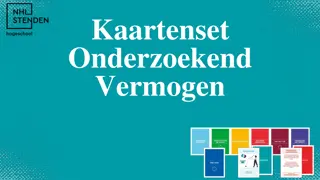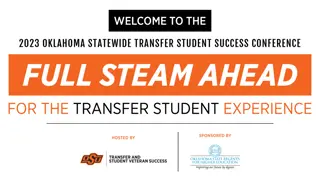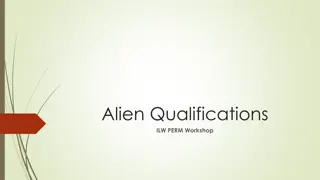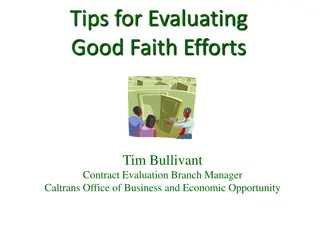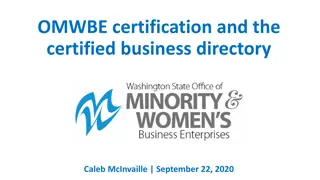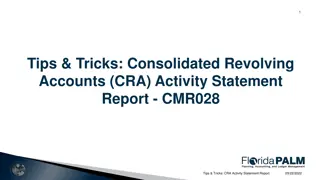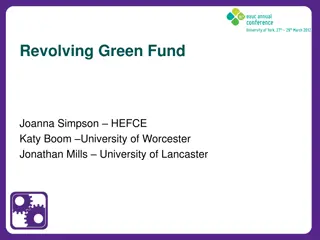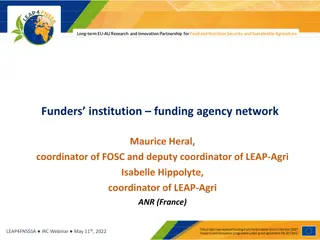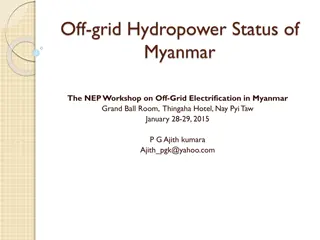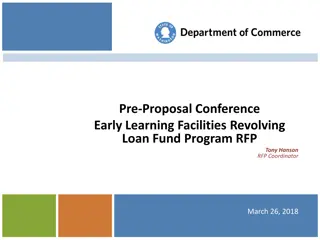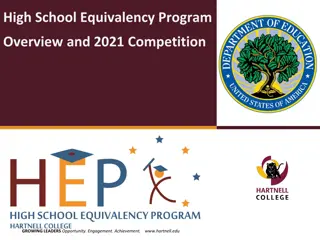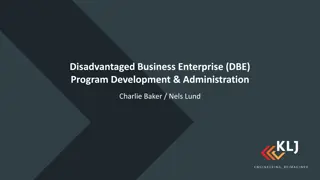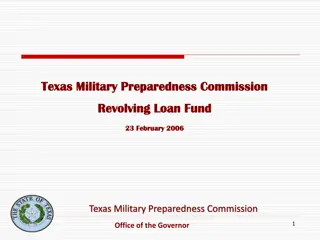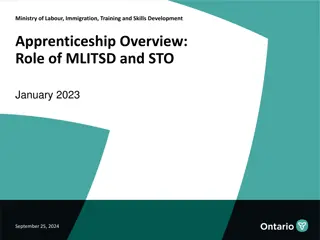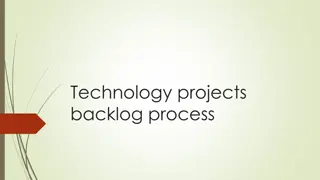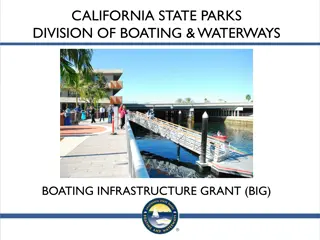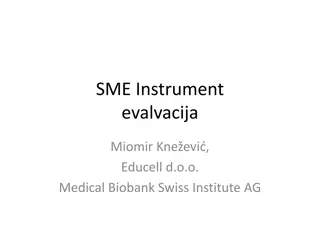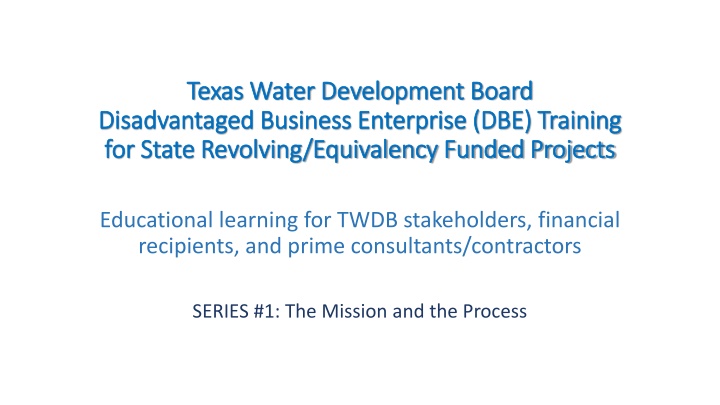
TWDB DBE Program and Six Good Faith Efforts
Learn about the Texas Water Development Board's Disadvantaged Business Enterprise (DBE) Program designed to increase the participation of minority- and women-owned businesses in EPA-funded procurements. Explore the mission, goals, and the importance of Six Good Faith Efforts in ensuring fair opportunities for DBEs.
Download Presentation

Please find below an Image/Link to download the presentation.
The content on the website is provided AS IS for your information and personal use only. It may not be sold, licensed, or shared on other websites without obtaining consent from the author. If you encounter any issues during the download, it is possible that the publisher has removed the file from their server.
You are allowed to download the files provided on this website for personal or commercial use, subject to the condition that they are used lawfully. All files are the property of their respective owners.
The content on the website is provided AS IS for your information and personal use only. It may not be sold, licensed, or shared on other websites without obtaining consent from the author.
E N D
Presentation Transcript
Texas Water Development Board Texas Water Development Board Disadvantaged Business Enterprise (DBE) Training Disadvantaged Business Enterprise (DBE) Training for State Revolving/Equivalency Funded Projects for State Revolving/Equivalency Funded Projects Educational learning for TWDB stakeholders, financial recipients, and prime consultants/contractors SERIES #1: The Mission and the Process
DBE Training Overview DBE Training Overview The DBE program is an outreach, educational, and goal- oriented program designed to increase the participation of minority- and women-owned businesses in procurements funded by the Environmental Protection Agency (EPA) assistance agreements through the State Revolving Funds. The DBE program goals, also referred to as fair share objectives, are negotiated every three years between the TWDB and EPA.
DBE Program Overview DBE Program Overview The Minority Business Enterprise (MBE) and Women Business Enterprise (WBE) goals are neither standards nor quotas; they are goals. Recipients of financial assistance are not required to meet the fair share objectives. They must, however, acknowledge that they are aware of and are actively pursuing the fair share objectives with their procurements.
DBE Program Mission DBE Program Mission The TWDB s DBE Program intends to ensure that applicants, recipients, consultants, and contractors are provided with information and guidance to successfully meet the EPA s DBE program requirements.
DBE Program Mission DBE Program Mission To oversee the solicitation process of TWDB financial assistance recipients in compliance with the Six Good Faith Efforts to procurements utilizing applicable State Revolving Funds. To ensure that financial recipients understand the overall DBE process to meet requirements and conditions of contract. To ensure that DBE program requirements are met. To develop confidence and competence of the DBE process from implementation to completion.
What is the purpose of the Six Good Faith Efforts? What is the purpose of the Six Good Faith Efforts? Title 40, Chapter I, Subchapter B, Part 33, Subpart C Title 40, Chapter I, Subchapter B, Part 33, Subpart C The Six Good Faith Efforts are methods employed by all EPA financial assistance agreement recipients to ensure that the disadvantaged business enterprises (DBEs) have the opportunity to compete for procurements funded by EPA financial assistance funds.
Good Faith Effort #1 Good Faith Effort #1 Ensure DBEs are made aware of contracting opportunities to the fullest extent practicable through outreach and recruitment activities. For Indian tribal and state and local government recipients, this will include placing DBEs on solicitation lists and soliciting them whenever they are potential sources.
Good Faith Effort #2 Good Faith Effort #2 Make information on forthcoming opportunities available to DBEs, arrange time frames for contracts, and establish delivery schedules, where the requirements permit, in a way that encourages and facilitates participation by DBEs in the competitive process. This includes, whenever possible, posting solicitations for bids or proposals for a minimum of 30 calendar days before the bid or proposal closing date.
Good Faith Effort #3 Good Faith Effort #3 Consider in the contracting process whether firms competing for large contracts could subcontract with DBEs. For Indian tribal and state and local government recipients, this will include dividing total requirements when economically feasible into smaller tasks or quantities to permit maximum participation by DBEs in the competitive process.
Good Faith Effort #4 Good Faith Effort #4 Encourage contracting with a consortium of DBEs when a contract is too large for one of these firms to handle individually.
Good Faith Effort #5 Good Faith Effort #5 Use the services and assistance of the Small Business Administration (SBA) and the Minority Business Development Agency (MBDA) of the Department of Commerce.
Good Faith Effort #6 Good Faith Effort #6 If the prime contractor awards subcontracts, require the prime contractor to take the steps in paragraphs 1 through 5 of this section.
Good Faith Effort Good Faith Effort Exemption Exemption There are no exemptions to bypass the Six Good Faith Effort requirements. The Six Good Faith Efforts must be executed on every procurement action that is subject to competitive bid and receiving SRF funds.
Compliance With Requirements Compliance With Requirements Compliance is achieved by: 1. Apply the Six Good Faith Efforts to all solicitations/procurements utilizing the applicable State Revolving Fund program. 2. Ensure that pertinent DBE language is included in RFQ and bid advertisements and solicitations. 3. Ensure advertisements post for the required duration of time. 4. Maintain detailed support documents to show compliance with the DBE requirements during review. 5. Complete and submit the TWDB s DBE forms in a timely manner (TWDB 0215, 0216, 0373, and 0217 forms).
Compliance With Requirements Compliance With Requirements Failure to comply with the DBE solicitation/procurement process outlined in this training document, and in a timely manner, may result in withholding of payments or project delays. Solicitation/procurement requirements apply to financial recipients and their primes.
Procurement Steps Procurement Steps Let s get started! Let s get started! Determine Your Procurement Needs For the two categories listed, you are required to solicit by any of the listed methods identified on the next page. Consider qualified DBE businesses that are capable of completing the requested work. Determine whether it is economically feasible to divide the proposed project into smaller tasks or quantities to permit maximum participation by DBE businesses. Procurement Categories CONSTRUCTION Defined as the work (hands on). Generally, relates to the bidding process for a prime or subcontractors. NON-CONSTRUCTION Defined as services, equipment, and supplies.
Determine Your Solicitation Methods Newspaper Advertisements Direct Contact You may choose from seven solicitation methods. A minimum of two different methods must be used to advertise. Solicitation may be performed in conjunction with any required local or state procurement laws. Meetings or Conferences Minority Media Postings Internet Website Postings Trade Association Publications Other Government Publications
Method Requirement: Newspaper Advertisements Newspaper Advertisements To certify the newspaper method, the recipient/prime must submit a tear sheet of the original post and a newspaper affidavit. Advertise in a local newspaper for a minimum of at least once for two consecutive weeks.
Method Requirement: Direct Contact Direct Contact You may directly solicit businesses utilizing phone, fax, USPS mail, or email communications. Any combination of these still counts as one method. You must contact a minimum of three certified businesses. At least one must be a certified MBE/WBE business. All documentation of such activity must be saved with the project files. Document the contact information such as the date, name of contacted firm and person, telephone number, MBE/WBE status, and category of work. When communicating via phone, an electronic or handwritten call log may be used as support.
Method Requirement: Meetings and Conferences Retain meeting announcements and/or the meeting minutes AND the sign-in sheet to show proof. Hold a meeting or conference to solicit your project.
Method Requirement: Minority Media Posting Minority Media Posting Distribute your advertisement among multiple DBE firms or businesses for the purpose of spreading the post and sharing opportunity on various minority platforms.
Method Requirement: Internet/Web Posting Internet/Web Posting Publish your solicitation up to 30 days online to allow sufficient time for bids and proposals.
Method Requirement: Trade Association Publications Collaborate with businesses of common interest to promote your advertisement. Support their business and they will support yours.
Method Requirement: Other Governmental Publications Communicate with the public to showcase public announcements to potential DBEs. 1. Hang your advertisement on the announcement board of a governmental entity that ensures access to potential DBEs. Provide your solicitation to the front desk of a governmental agency for easy access and retrieval. 2.
PERTINENT DBE LANGUAGE PERTINENT DBE LANGUAGE To ensure compliance, the TWDB highly encourages the following DBE statement be included in required solicitation methods. This contract is subject to the Environmental Protection Agency's (EPA) Disadvantaged Business Enterprise (DBE) Program, which includes EPA-approved fair share goals toward procurement of Minority and Women-owned Business Enterprise (M/WBE) businesses. EPA rules require that applicants and prime contractors make a good faith effort to award a fair share of contracts, subcontracts, and procurements to M/WBEs through demonstration of the six affirmative steps. For more details of the DBE Program and the current, applicable fair share goals, please visit www.twdb.texas.gov/dbe.
REQUIRED TWDB REQUIRED TWDB DBE FORMS DBE FORMS Recipients of financial assistance through the SRF programs will be required to submit DBE support documentation and forms at different phases during the project s lifecycle. Submitting DBE forms to the TWDB alone will not meet the EPA s fair share policy. Forms are required by the entity for prime procurements AND required by the prime for sub procurements. Form 215 is not required by primes. TWDB Form 215 APPLICANT/ENTITY AFFIRMATIVE STEPS CERTIFICATION and GOALS TWDB Form 216 AFFIRMATIVE STEPS SOLICITATION REPORT TWDB Form 373 PARTICIPATION SUMMARY TWDB Form 217 PRIME CONSULTANT/CONTRACTOR CERTIFICATION Links to forms are located on slide 28.
Gather support documents to show proof of two solicitation methods. Documents should support each method selected on form 216, section II. Complete form 216 in its entirety. The form must be signed by the entity, prime, or representative depending on the type of procurement. Complete form 373 in its entirety. The form must be signed by the entity, prime, or representative depending on the type of procurement. Awarded primes complete form 217 in its entirety. The form must be signed by awarded prime contractors and prime consultants. Review packet content and submit to TWDB DBE staff for approval. Submit to: DBE@twdb.texas.gov Prepare for Your DBE Prepare for Your DBE Compliance Review Compliance Review
Texas Water Development Board Texas Water Development Board Disadvantaged Business Disadvantaged Business Enterprise (DBE) Program Enterprise (DBE) Program Future Trainings Future Trainings & & Links to Forms: Links to Forms: TWDB Disadvantage Business Enterprise External Learning TWDB TWDB- -DBE 210 Guidance DBE 210 Guidance UPCOMING Series in 2024-2025 TWDB TWDB- -DBE Form 215 DBE Form 215 TWDB TWDB- -DBE Form 216 DBE Form 216 SERIES #2 TWDB TWDB- -DBE Form 373 DBE Form 373 Intro to Special Procurement Circumstances TWDB TWDB- -DBE Form 217 DBE Form 217 SERIES #3 Common Solicitation/Procurement Mistakes DBE email address: DBE email address: DBE@twdb.texas.gov DBE@twdb.texas.gov
Texas Water Development Board Texas Water Development Board Disadvantaged Business Enterprise Disadvantaged Business Enterprise (DBE) Program (DBE) Program Contact Information Contact Information Jo Carol Bradshaw Program Specialist DBE Coordinator Jo.Bradshaw@twdb.texas.gov 512-463-4841 Questions? Tehrene Hart Program Specialist DBE Coordinator Tehrene.hart@twdb.texas.gov 512-475-1898 Send us your questions via email: DBE@twdb.texas.gov Nicki Hise Reporting Manager Nicki.hise@twdb.texas.gov 512-936-4304 Place in subject line: External DBE Training Question

